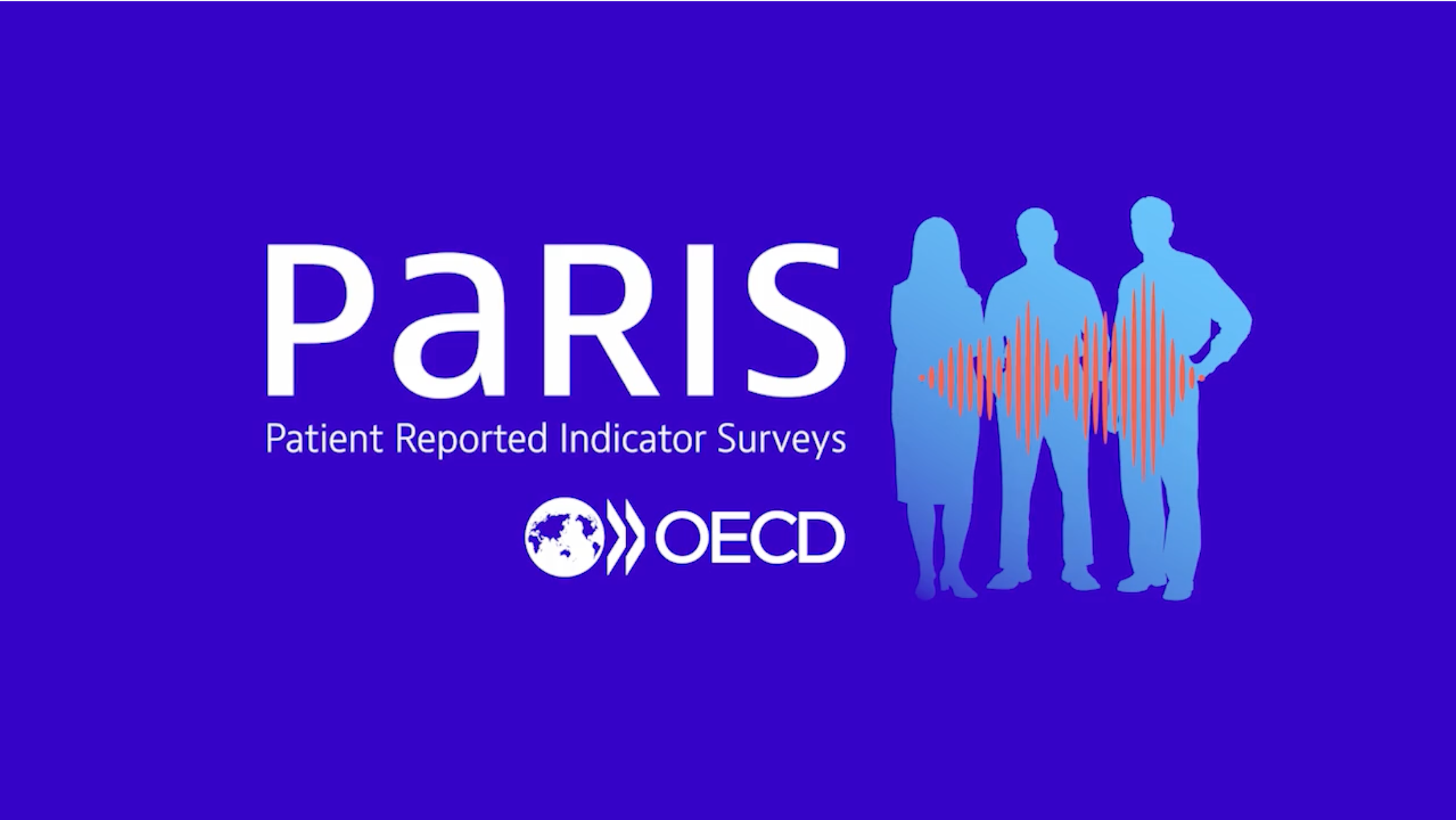PaRIS surveys: Patients improving care worldwide

What if patients could help you improve healthcare—not just for themselves, but for millions worldwide?

By Dr Zalika Klemenc-Ketiš (Slovenia)
Primary care serves as the cornerstone of effective, accessible, and equitable healthcare. Yet, one of the enduring challenges in primary care research and policy has been the lack of reliable, comparative data on patient outcomes and experiences—particularly from those living with chronic conditions. The OECD’s Patient-Reported Indicator Survey (PaRIS) initiative addresses this gap by systematically collecting and analysing data reported directly by patients and primary care practices across countries.
PaRIS: a global initiative with local relevance
The first cycle of PaRIS, conducted between 2017 and 2025, involved over 107,000 patients and 1,800 primary care practices across 19 countries. It marked a milestone in health system performance measurement by placing patients’ perspectives at the centre of evaluation—focusing on both outcomes (e.g., physical functioning, psychological well-being, quality of life) and experiences (e.g., accessibility, care continuity, provider communication).
For family doctors, these dimensions are not abstract indicators—they reflect the daily reality of caring for individuals with multimorbidity, psychosocial complexity, and long-term care needs. The results of the first cycle provide an important evidence base to inform policy and guide clinical quality improvement in primary care. Read more.
For highlights from the launch event of the report, see this WONCA article: Using OECD PaRIS Report to Transform Primary Care.
The second cycle: building on a strong foundation
Following strong international support, including endorsement by health ministers from over 40 countries, the second cycle of PaRIS is now being prepared. The second round will benefit from improved instruments, streamlined processes, and lessons learned during the first implementation. Data collection is scheduled to begin with pilot testing in 2026, followed by the main survey in 2027, analysis in 2028, and a flagship international report in 2029.
Participating countries will have access to anonymised, practice-level data and international benchmarks. These insights can support national policy development, professional education, and local quality initiatives.
Why engagement matters for family doctors
The value of PaRIS for family doctors is twofold. First, it offers a structured, evidence-based mechanism to assess and improve care from the perspective of those receiving it. Second, it provides comparative data that can highlight systemic strengths and challenges in different health system contexts.
As primary care practitioners and leaders, family doctors are well-positioned to contribute to and benefit from this initiative. National professional organisations, primary care research institutes, and clinical leaders are encouraged to support the participation of their countries and ensure that survey implementation is aligned with the realities of primary care practice.
How to join
Countries interested in participating in the second cycle should express their interest to the OECD Secretariat in 2025. A formal commitment via a participation agreement will be required by March 2026. Countries that engage early will have the opportunity to contribute to the refinement of survey tools and the planning process. Participation includes financial contributions, structured by economic capacity, and the appointment of a national project manager to oversee implementation.
For more information or to initiate discussions about joining the initiative, visit: www.oecd.org/health/paris or contact the PaRIS Secretariat at paris_survey@oecd.org.
Global vision, grounded in your practice
PaRIS isn’t just a project—it’s a movement toward a future where health systems listen to patients and support doctors more effectively. As a family doctor, you already work to deliver person-centred care. By joining this global initiative, you help ensure that your patients’ voices—and your professional insight—shape the health systems of tomorrow.
Let’s build a healthcare future where what matters to patients matters to everyone.
WONCA Webinar Series: Exploring the OECD PaRIS Survey Results
This three-part webinar series is hosted by the WONCA Working Party on Quality and Safety. It aims to highlight key findings from the OECD’s Patient-Reported Indicator Surveys (PaRIS) and support family doctors in using this data to advocate for stronger, more responsive primary care systems worldwide.
Does healthcare deliver? Results from the Patient-Reported Indicator Surveys (PaRIS)
Date & Time: Tuesday, 10 June 2025 at 14:00 UTC
Speaker:
Dr. Candan Kendir, OECD Health Division
Purpose:
This session will introduce the key findings of the OECD PaRIS survey, the world’s first international survey to report on patients’ experiences and outcomes in primary care. It will set the scene for WONCA members by providing a global overview and highlighting how this data can be used to push for person-centred reforms.
Primary Care Through Patients' Eyes: What We Can Learn from Slovenia and Czechia
Date & Time: Monday, 23 June 2025 at 15:00 UTC
Speakers:
Prof. Zalika Klemenc Ketiš, MD, PhD, University of Maribor, Slovenia
Prof. Bohumil Seifert, MD, PhD, Charles University, Czech Republic
Purpose:
This webinar explores insights from two PaRIS national implementations. Speakers will share what patient-reported data revealed about care quality and coordination in Slovenia and Czechia. Participants will reflect on how these findings can inform improvements in other health systems.
Registration link:
https://eu01web.zoom.us/meeting/register/dfH0wlbMRG2IMZoBHcUcrw
Measurements behind Patients’ Voices: PROMs and PREMs in OECD PaRIS
Date & Time: Sunday, 6 July 2025 at 10:00 UTC
Speaker:
Prof. Jose M. Valderas, MD, PhD, National University of Singapore
Purpose:
This session will focus on the measurement science behind the PaRIS survey—patient-reported outcome measures (PROMs) and patient-reported experience measures (PREMs). Attendees will gain a deeper understanding of the tools used in PaRIS and how to interpret and apply the results in practice and advocacy.
Registration link:
https://eu01web.zoom.us/meeting/register/8VNTjPZpR2eaWGjOVLSuZg